Visiting Artist Adesola Akinleye, an interdisciplinary artist-scholar and choreographer, invites you to observe and engage with the MIT campus.
As a 2020-22 Visiting Artist at the MIT Center for Art, Science & Technology and Research Affiliate in the Art, Culture, and Technology program, Akinleye investigates how dance-based research and creative collaboration across disciplines can create new techniques, lexicons, and conversations within urban design.
With a particular interest in how the city shapes our bodies, and how, in turn, we shape the city, Akinleye invites the MIT community to observe and engage with the micro-city where we live, work, and learn.
“We must understand ourselves as contributing to our belonging to the city, our belonging to the environment, which is possible through our ability to respond. We are not separate from city or environment, not separate from Place: we are a part of it all.” says Akinleye.
Brought to you by MIT Center for Art, Science & Technology and the Art, Culture, and Technology Program at MIT.
For more information, contact cast@mit.edu
How to Participate
Each participant’s exploration will be unique: feel free to follow your own path at your own pace. We invite you to share favorite moments from your experience on social media using the hashtag #ChoreographingtheCampus in order to create a collective digital map of our community and our campus.
Further Exploration
Demonstrations by Adesola Akinleye
While in residence at MIT, Adesola Akinleye has identified a lexicon of worded-ideas, or common vocabulary, that stimulates trans-disciplinary communication. Participants are encouraged to use the lexicon as a prompt for reflection and response to the meaning-making of Places as they navigate the MIT campus.
By noticing how buildings, paths, shadows, fences, and the people around us impact our movements and how we impact them, we examine and even reconsider the meaning of this Place.
The following videos were created to provide inspiration for possible responses and a methodology that participants may use, rather than a prescribed outcome.
Watch Adesola Akinleye’s responses to the MIT campus, inspired by the lexicon, as she encountered it in March 2022.
BOUNDARY: stream of water or traffic
Location: 4 Ames Street, Cambridge MA
Parking Lot on north side of Saxon Lawn, west of MIT Building E2
Creates a distinctive flow of movement contingent on BOUNDARY creates a distinctive flow of movement contingent on the assemblages that define it. BOUNDARY appears and distorts direction because of the flows of movement the assemblage creates. In this case, the assemblage of cars or volume of water that create the BOUNDARY of a stream.
SCORE: substance of the map
Location: 20 Ames Street, Cambridge MA
Steps of MIT Wiesner Building, E15
SCORE ranges from a set of instructions or a temporary infrastructure for understanding things to a method for recalling structures or responses.
PRECISENESS: walls and fences
Location: 15 Massachusetts Avenue, Cambridge MA
Along the “Outfinite,” on the north side of MIT Bush Building, 13
PRECISENESS is often an indicator of the rules or regulations one can go along with, follow, but also fall off, step across, and over. PRECISENESS can create invisible or unperceived actors in interactions.
RESISTANCE: the key to the map
Location: 70 Vassar Street, Cambridge MA
North side of MIT McNair Building, 37
RESISTANCE determines the parameters of what one is working with. RESISTANCE shapes understanding of encounter and can be used to confirm presence.
Back to Top
Additional Worded-ideas in the Lexicon
In addition to Adesola Akinleye’s above demonstrations of BOUNDARY, SCORE, PRECISENESS, and RESISTANCE, there are six more worded-ideas that complete the lexicon.
(at least) FOUR-DIMENSIONAL DISTANCE: grid/magnetic north
Space cannot be separated from time in embodied experience. This four-dimensionality contextualizes movement (and experience) in the same way magnetic north or the grid lines contextualize elements on a map.
AGENCY: road junctions
In the widest sense, all things have a future and therefore engage with AGENCY. AGENCY effects where one moves from and to, indicates points to begin or the perceived distance from, and involves the direction of movement and an ability to use movement to conjure distance.
CONNECTEDNESS/SEPARATEDNESS: contours on the map
Connection and separation lift experience off the fabric of consciousness and raise the contours of response (IMPROVISATION). CONNECTEDNESS/SEPARATEDNESS illustrates the multidimensionality of experience, un-camouflaging habit or checking instinct, just as the contour indicators on a map give definition to the map.
GROWTH: paving stones
Consider that GROWTH is not about size or consumption, it is about more or fewer connections. GROWTH as connection has a mosaic of potential experiences, similar to the way paving stones connect to each other and pavement connects Places in the city.
IMPROVISATION: the route at any given moment
A contingent, temporary responsive structure, IMPROVISATION responds to the multifaceted shape of now.
POWER: railway lines and main roads
With attributes of high velocity and directional movement, POWER conjures points of perception–where one moves from and to. POWER facilitates movement/travel leading to connections (GROWTH), actions, and relationships, just as railways and main roads facilitate high velocity and directional travel.
Back to Top
Interactive Map of Adesola Akinleye’s Route through MIT Campus
Follow Adesola Akinleye’s path across MIT’s campus and visit the locations where she observed and responded to the campus.
(Also downloadable as a PDF)
Back to Top
Further Exploration
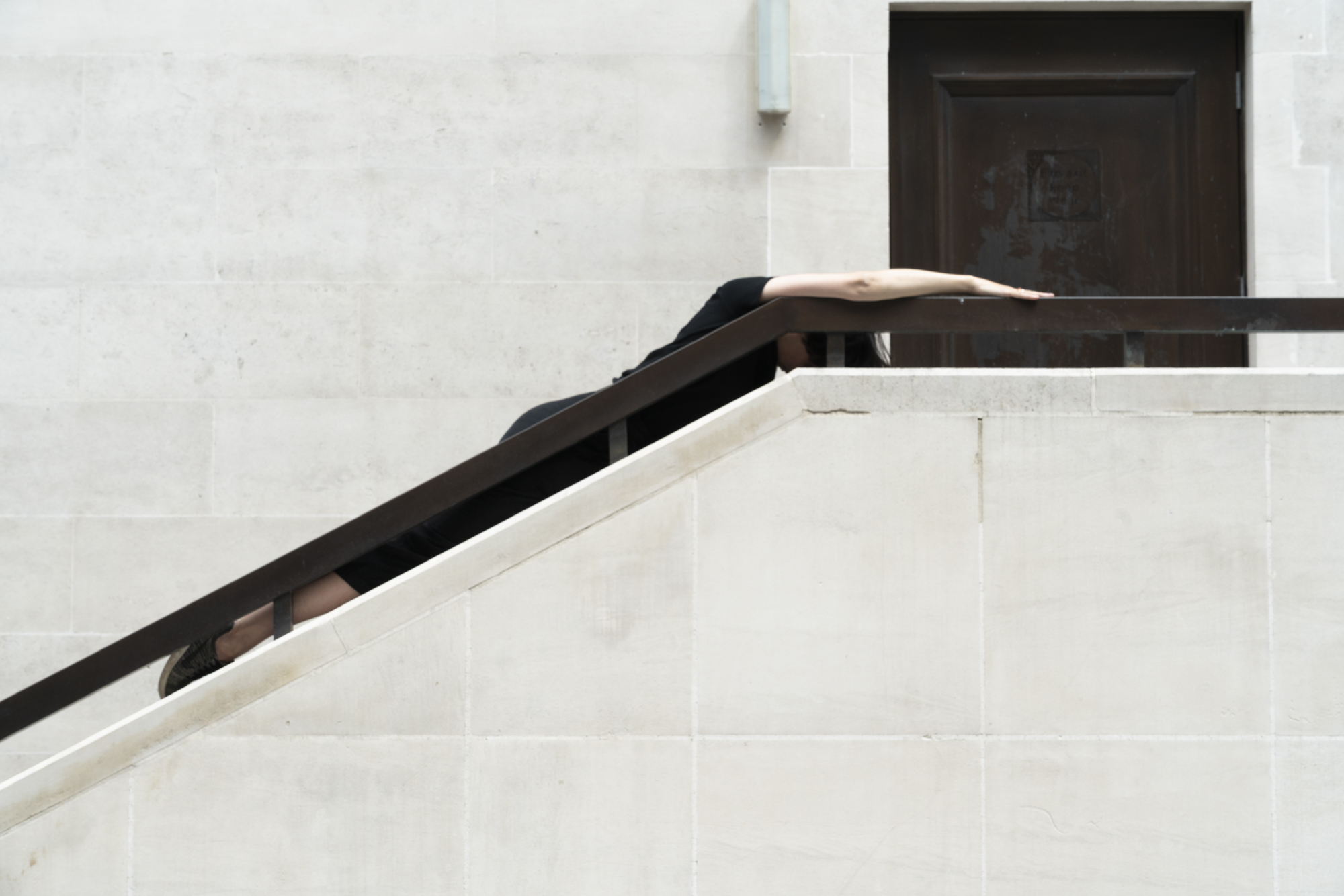
Theatrum Mundi
Theatrum Mundi is a centre for research and experimentation in the public culture of cities. They help to expand the crafts of city-making through collaboration with the arts, developing imaginative responses to shared questions about the staging of urban public life. Based in London and Paris, Theatrum Mundi works through performance, design, publishing, research, and teaching with partners across Europe and the Mediterranean.
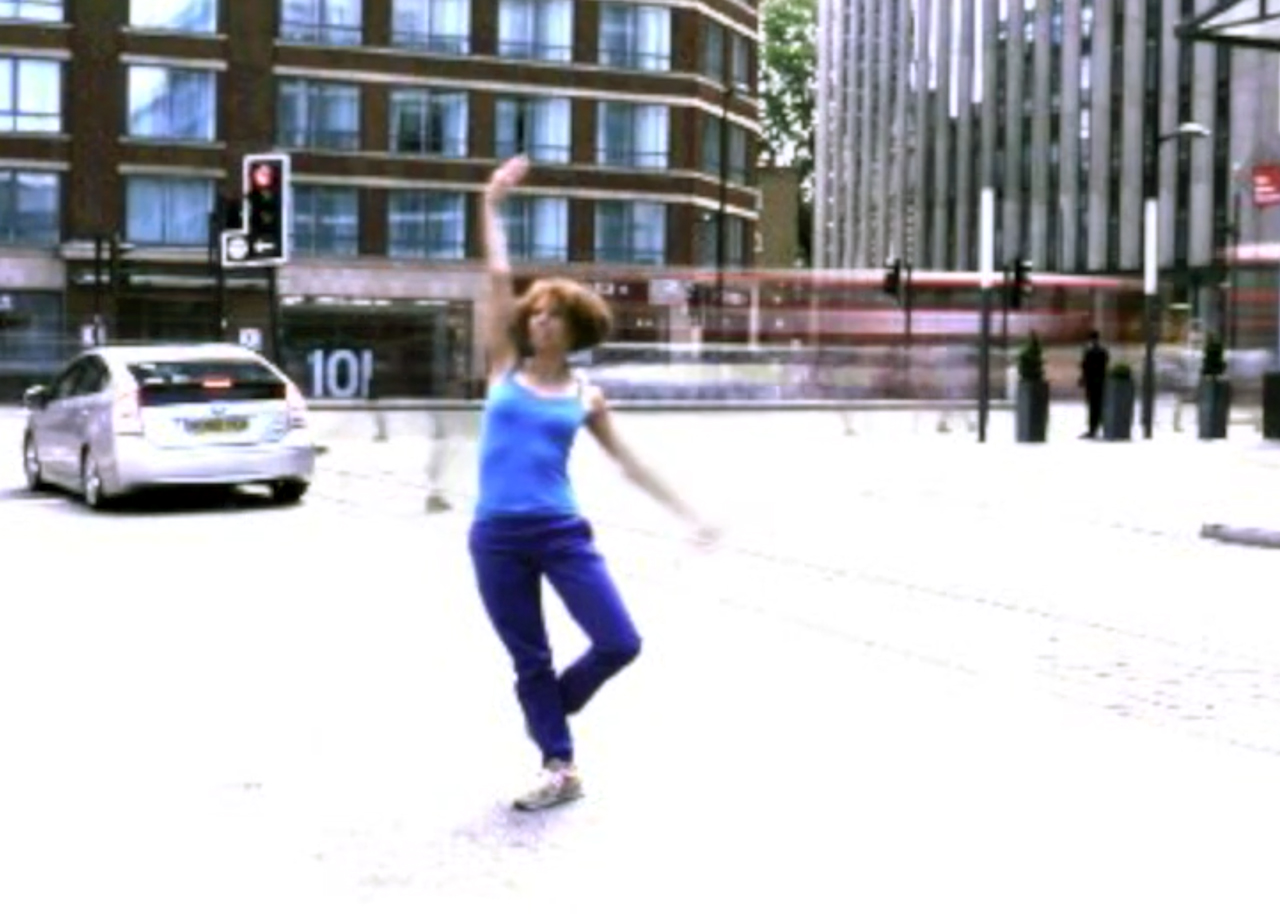
Article: “Dance As a Language for Design”
More about Adesola Akinleye’s collaboration with MIT Associate Professor Gediminas Urbonas, and how the search for a new vocabulary may lead to new techniques in design (and choreography), and to more effective and compelling ways for artists to engage with the public.
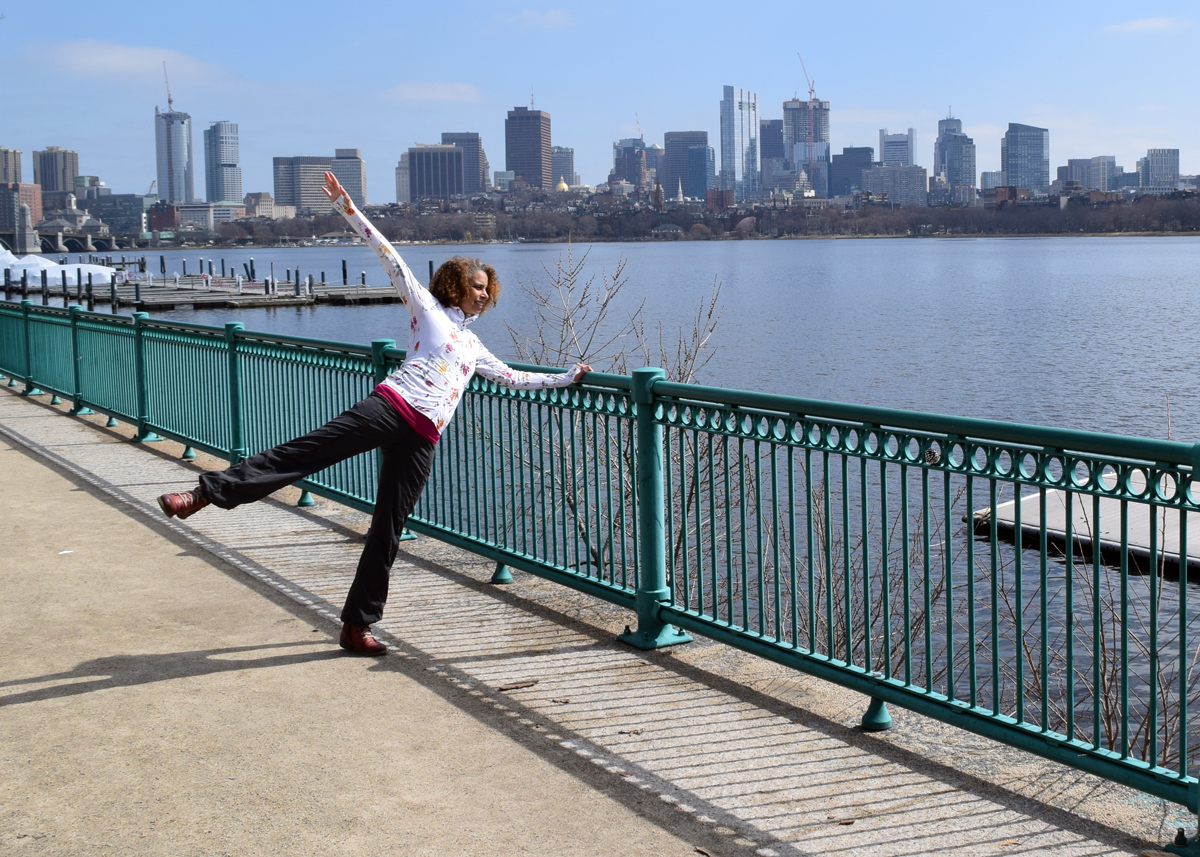
Adesola Akinleye at MIT
Adesola Akinleye’s residency at MIT, which began in 2020, explores how dance-based research and creative collaboration across disciplines can create new techniques, lexicons, and conversations within urban design. Working with Gediminas Urbonas, Associate Professor in the Art, Culture, and Technology program at MIT (ACT), Akinleye collaborates with faculty, researchers, and students in ACT, Music & Theater Arts, and MIT.nano, as well as external collaborators from Theatrum Mundi, an organization that engages in research and teaching on the public lives of cities.
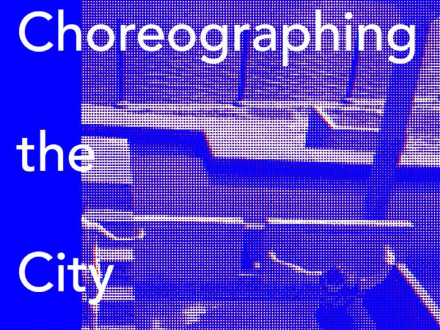
Choreographing the City Podcast
Hosted by Dr. Adesola Akinleye, Professor Gediminas Urbonas, and Chucho Ocampo Aguilar SMACH ‘21, this eight episode podcast features conversations with Ellie Cosgrave, Diane McIntyre, Richard Sennett, Arianna Mazzeo, Hūfanga ‘Ōkusitino Māhina, Scott L. Pratt, John Bingham-Hall, and Liz Lerman.
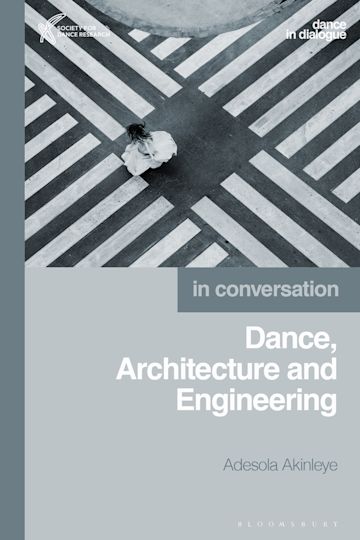
Dance, Architecture and Engineering
Written by Adesola Akinleye and published in 2021 by Bloomsbury, the book explores how embodied knowledges across dance, architecture, and engineering can contribute to decolonizing the production of place – in particular, how dance and city-making cultures engage with female bodies and non-white bodies in today’s era of #MeToo and #BlackLivesMatter.
Back to Top
MIT acknowledges Indigenous Peoples as the traditional stewards of the land, and the enduring relationship that exists between them and their traditional territories. The land on which we sit, stand, and dance is the traditional unceded territory of the Wampanoag Nation. We acknowledge the painful history of genocide and forced occupation of their territory, and we honor and respect the many diverse indigenous people connected to this land on which we gather from time immemorial.
